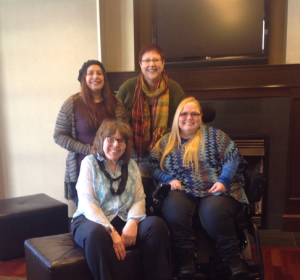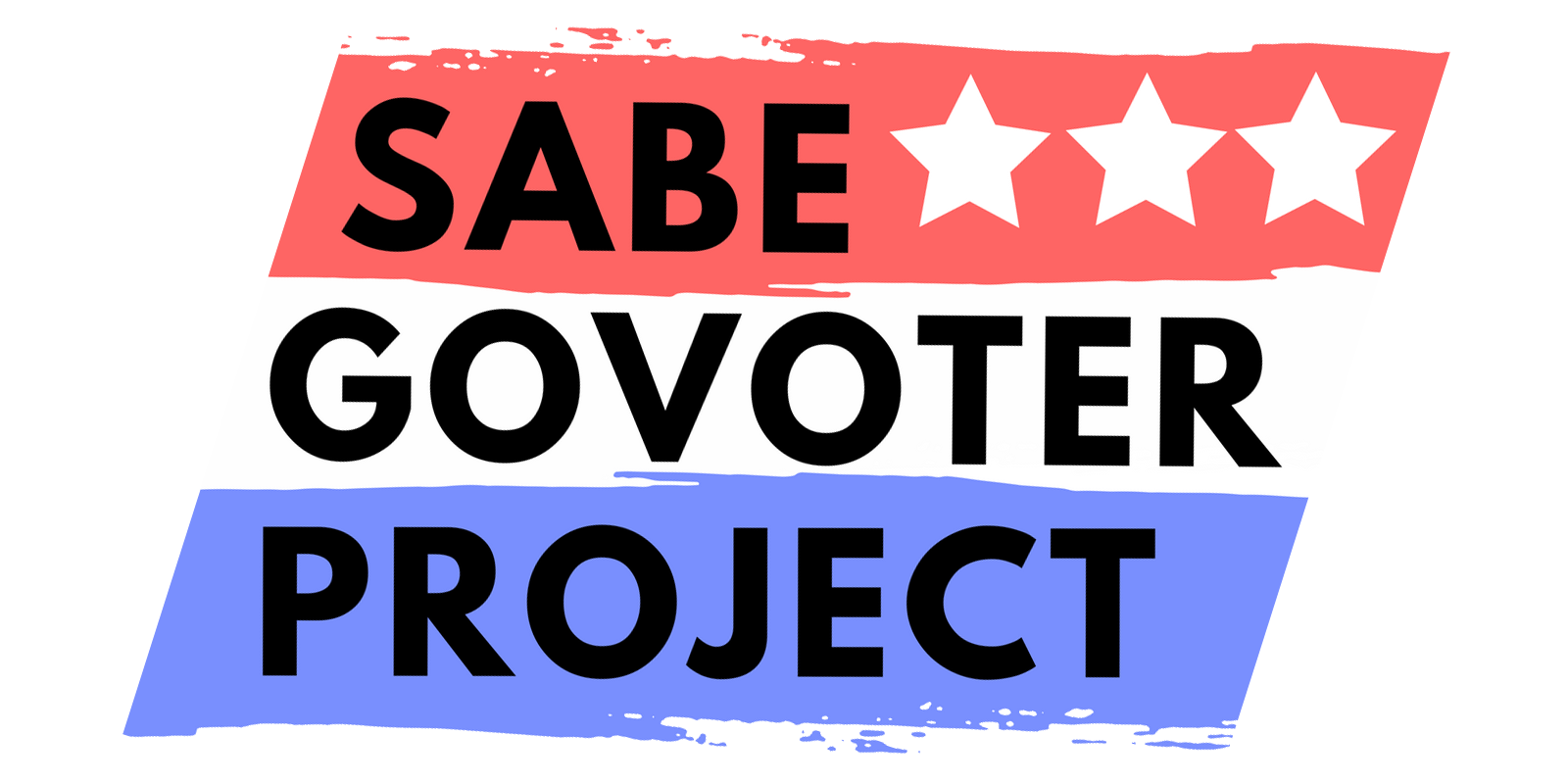SABE region representatives and Oregon Health and Science University (OHSU) started working together to educate people about voting in 2000. SABE noticed that people with disabilities were not exercising their right to vote and wanted to give everyone the opportunity to vote.
SABE received a grant from the Joseph P. Kennedy Foundation to develop the Vote training curriculum. In 2002, the Administration on Developmental Disabilities funded SABE to continue the project to teach state self-advocacy groups about voting. Between 2002 and 2004 SABE taught nine state self-advocacy groups how to lead voter education trainings for people with disabilities in their state. The SABE GoVoter Project continues to educate other states.
States that have completed the Distance Training include: Alabama, Arizona, Arkansas, California, Florida, Georgia, Indiana, Maine, Maryland, Mississippi, New Mexico, New York, Oklahoma, Oregon, South Carolina, and Wisconsin.
Will your state be next? Please call Teresa Moore, SABE GoVoter Project Director at 602-725-3117, if you are interested in the 2020 Distance Training.
Why is the GoVoter Project important?
SABE realized that self-advocacy groups needed partners in the community to help educate people about voting rights. In 2004 SABE applied for funds from the Administration on Developmental Disabilities to provide training and technical assistance to Protection and Advocacy organizations across the country. SABE continues to work with Protection and Advocacy groups, self-advocacy groups, and other disability vote groups to make the voting process accessible to everyone, including citizens with disabilities.
What can you do to help?
The SABE GoVoter Project has two activities that you can be a part of.
- Talk to your self advocacy group and your state protection and advocacy organization to teach others about voting rights.
- Complete the SABE GoVoter Survey.
Commonly Asked Questions
What do you do?
- Assist protection and advocacy systems to identify and address barriers to cognitive accessibility
- Connect protection and advocacy systems (P&As) with self-advocacy groups
- Provide national Distance Training through a Webinar series with self advocacy groups and state P&As
- Present a session at the NDRN conference on how to use the interactive website (www.govoter.org) and the results of the voting experience survey and the site accessibility survey
- Provide voter education training at additional national conferences
- Upon request provide on-site training with P&As, self-advocacy groups, and election officials on providing cognitively accessible voter education for citizens with cognitive disabilities: voter registration, casting a ballot, and full participation in the electoral process
- Develop materials and tools to increase cognitive access (friendly), accessible voter education training curriculum that can be edited to make it state specific
- Provide technical assistance to P&As in building partnerships with self-advocacy groups
Who are the people on the team?
The current GoVoter project team includes Nancy Ward, Teresa Moore, Leanne Roth, Juliana Huerena.

Past team members include Essie Pederson, Hannah Bowen, Krystle McCarthy, Laura Jackson, Tia Nelis, Mary Oschwald, Laurie Powers, Chester Finn, Hope Finley, Lynne Tamor, Peri Jude Radecic, Betty Williams, Jason Billehus, John Britton, Ruby Moore.
What organizations are part of the team?
The National Technical Assistance Center is a partnership with:
- Self-Advocates Becoming Empowered
- NDRN
- Moore Advocacy Consulting
- Oklahoma Disability Law Center
Learn about past partners on the project: TheArcLink Incorporated, The Arc of the US, Arizona Center for Disability Law, Georgia Advocacy Office
Where does the project get money?
The National Technical Assistance Center received a Help America Vote Act (HAVA) grant from the Administration on Intellectual and Developmental Disabilities (AIDD) for the years of 2004 to 2012. To learn more about AIDD please visit their website at http://www.acf.hhs.gov/programs/add/index.html.
From 2012 to currently, SABE has been awarded a HAVA grant from AIDD in partnership with National Disability Rights Network (NDRN). The National Technical Assistance Center has a long history of partnering with NDRN and we look forward to working together to assist the P&As to increase accessibility to the voting process for people with disabilities.
